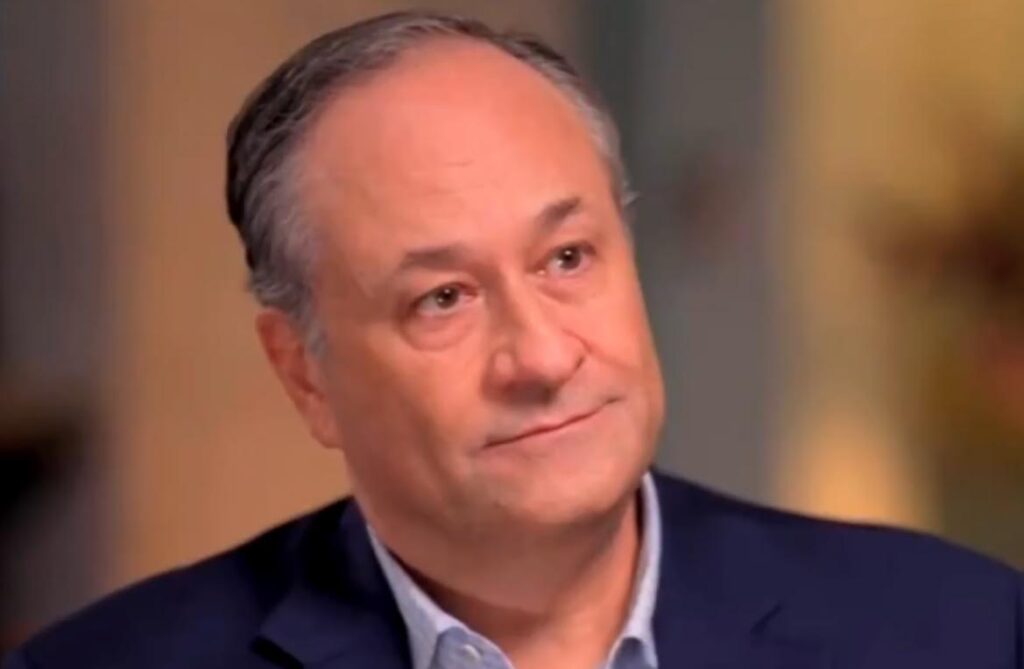Doug Emhoff, the husband of Vice President Kamala Harris, recently underwent a challenging interview with MSNBC’s Joe Scarborough, which took a tense turn when he was confronted about allegations of domestic violence from over a decade ago. The discussion was sparked by reports detailing an incident in which Emhoff allegedly slapped an ex-girlfriend during the Cannes Film Festival in May 2012. The account described how he struck the woman hard enough that she “spun around,” leading to concerns about his past behavior, a stark contrast to his current public stances on issues like toxic masculinity.
According to a report from the Daily Mail, three friends of the alleged victim, referred to as ‘Jane,’ provided corroborating accounts of the incident, noting that she had confided in them shortly after it occurred. These friends have expressed their fear of retaliation from Emhoff, which has led them to remain anonymous. The incident reportedly unfolded late at night after a festival event, and Jane shared her emotional distress with friends immediately after the alleged incident. The discussion of the incident resurfaced during the interview, placing Emhoff in a difficult position, given his public advocacy for respectful conduct among men.
Scarborough pressed Emhoff on the accusations, invoking comments previously made by former President Donald Trump that suggested such stories should be at the forefront of media coverage. Emhoff appeared nervous, swallowing hard as he navigated questions concerning his personal life, yet he refrained from explicitly denying the domestic abuse allegations. Instead, he framed his responses around the broader context of distraction and deflected focus away from personal controversies, stating, “We don’t have time to be pissed off” about the situations being discussed.
Emhoff asserted that the attacks were aimed to distract from the critical issues at hand, particularly as he and his wife prepared for the upcoming election. He emphasized their commitment to moving forward with their campaign efforts, conveying that their priority lies in addressing the stakes of the election rather than being sidetracked by negative publicity. The discussion highlighted a tension between personal accusations and political responsibilities, placing a spotlight on how the couple handles external pressures.
As the interview continued, Emhoff maintained that the focus should remain on the election, reiterating, “We understand the stakes. We understand the responsibility.” His reluctance to delve deeper into the allegations might suggest a strategy aimed at steering clear of personal controversies while reaffirming their professional dedication. This approach resonates with the public discourse surrounding the accountability of prominent figures regarding their past behaviors, particularly in light of broader social movements advocating for change in how allegations of domestic violence are treated.
Overall, Emhoff’s interview with Scarborough revealed the complexities inherent in the intersection of public life and personal history. While he faced direct questions about serious accusations, his responses reflected an ongoing struggle to balance accountability with the demands of political engagement. The interview serves as a reminder of how personal allegations can resurface and impact public perception, especially in the highly scrutinized realm of political leadership where narratives around character and integrity frequently come into play.

